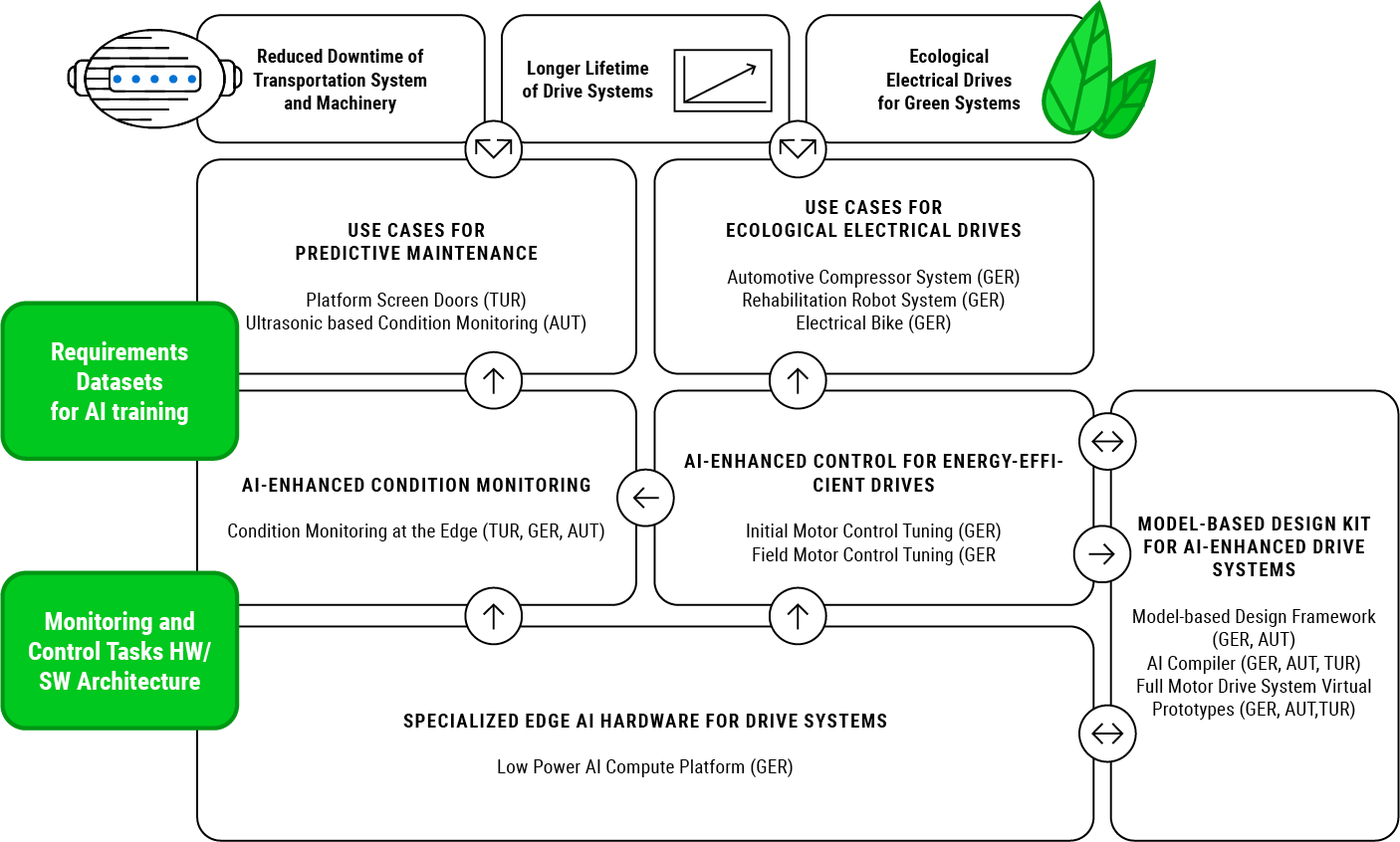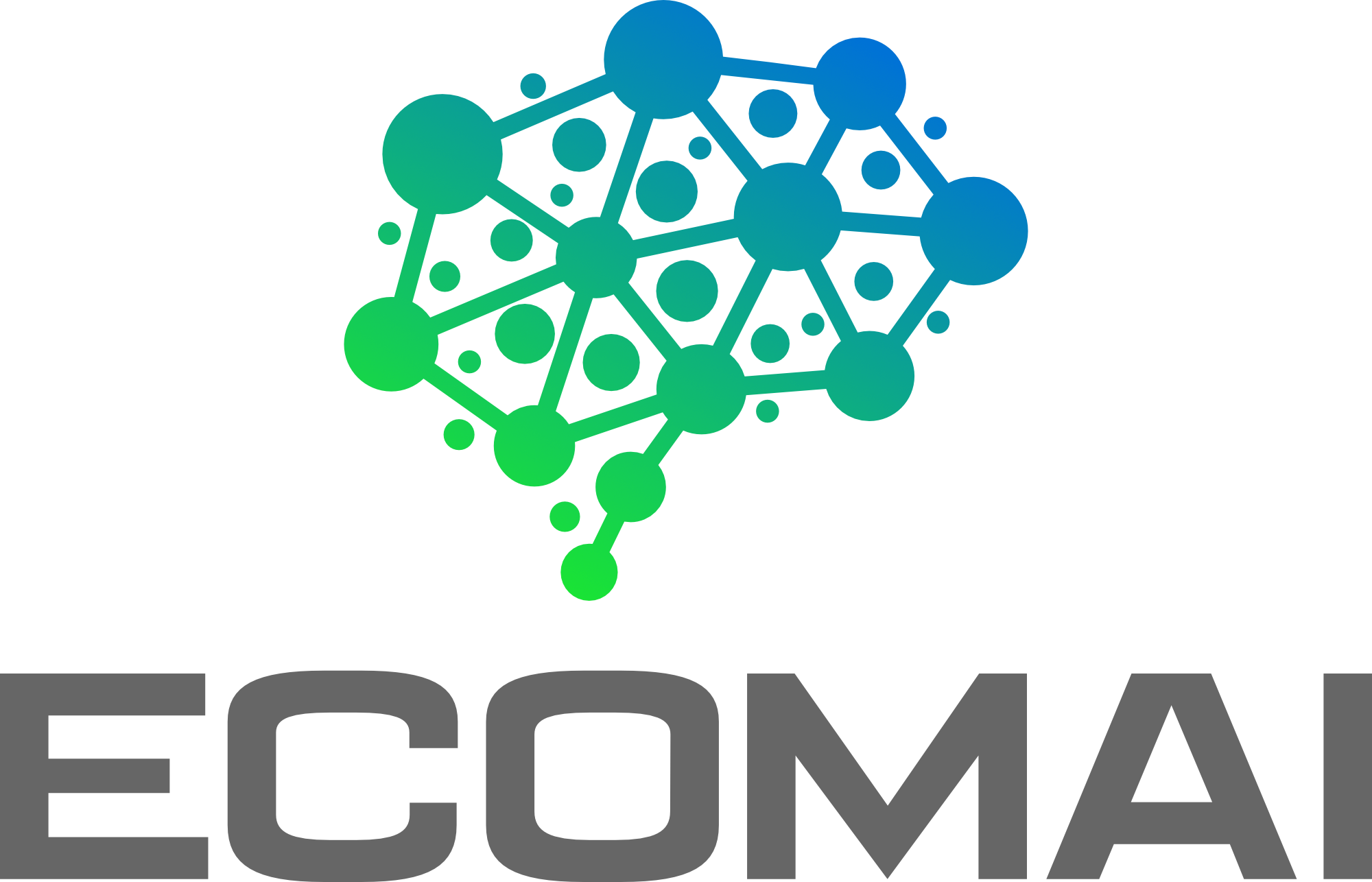ECOMAI
Ecological Motor Control and
Predictive Maintenance with AI
Electric motors are everywhere from laptop fans and dishwashers to industrial machinery, robots, public transport and more. A modern car can alone contain about 40 motors for various functions. But these valuable uses come at a cost. It has been calculated that electric motors account for 40% of worldwide power consumption and 20% of CO2 emissions*.

Mission
To address these issues, the ECOMAI project is developing technologies
-
to enhance electric motor drive systems with an embedded AI system running on a specialised AI hardware platform
-
to optimise the efficiency and lifetime of electric motors, thereby reducing energy consumption and enabling development of more ‘ecological’ systems
-
to lead to market opportunities for applications in numerous sectors including automotive, medical and transportation.
Goals

Technical Goals
This platform will provide both cost-efficient AI functionality and explore advanced accelerator and approximate computing principles. Furthermore, ECOMAI will deliver an innovative Model-based Design and Automation Framework: a full development toolkit that combines model-based design and an AI compiler for the specialised hardware platform along with a full system modelling and simulation environment. This will make ECOMAI’s technologies easily accessible, particularly for SMEs.
Develop a Edge AI Solution to be integrated into Motor drive systems consisting of:
- Specialized AI hardware platform
- Development kit with AI compiler, model-based design and simulation environment
- AI Applications for Predictive Maintenance and Energy-efficient Control to execute on the hardware.

Expected impact
The ECOMAI project offers a basis for Europe to establish a leading role in AI-enhanced electrical motor drive technology – from hardware to applications – through solutions that support the green and digital transitions.
- Contribute to the objectives of the European Green Deal by enabling more ‘ecological’ solutions now and paving the way to further energy saving options in the future
- Respond to a rapidly growing market for AI chips, motor control chips and motors in general (growth rate globally of 8% by 2025 for Electric Motors)
Key Application Areas
Digital Industry
Mobility
Quality, Reliability, Safety and Cybersecurity
Essential Capabilities
Architecture and Design: Methods and Tools
Artificial Intelligence, Edge Computing and Advanced Control
Components, Modules and Systems Integration
Technology Value Chain and Use Cases

‘Ecological’ use cases:
- An automotive compressor system demonstrating the potential of AI to deliver better control performance.
- An electrical bike testbench for intelligent sensorless electric bike traction applications, incorporating an AI-based torque control algorithm.
- A test environment for a robotic rehabilitation system for mobility impaired people, exploring, amongst other functionality, capabilities for neuro-feedback.
Condition monitoring and predictive maintenance:
- A railway Platform Screen Door (PSD) system, including AI enhanced PdM algorithms and the TinyML edge device developed by ECOMAI to prolong operational availability.
- An ultrasonic traducer, using AI to understand which changes of the driving signal will be the result of certain alterations in a structure or volume when excited by the ultrasound: a motor, a battery or another complex medium for ultrasonic-based condition monitoring.
News
Translating research into an economic and ecological gamechanger
From the Master Thesis to the Vertical Penta Project ECOMAI: an Interview with Scientific Project Lead Daniel Müller from TU Munich
Presenting Infineon
Empowering Tomorrow’s Innovations Today and Pioneering the Future
Presenting TU ILMENAU
Automation, Measurement Technology, Automotive Engineering




![BMBF_CMYK_Gef_M [Konvertiert]](https://ecomai.eu/wp-content/uploads/2022/11/BMBF_gefoerdert_2017_en.jpg)

